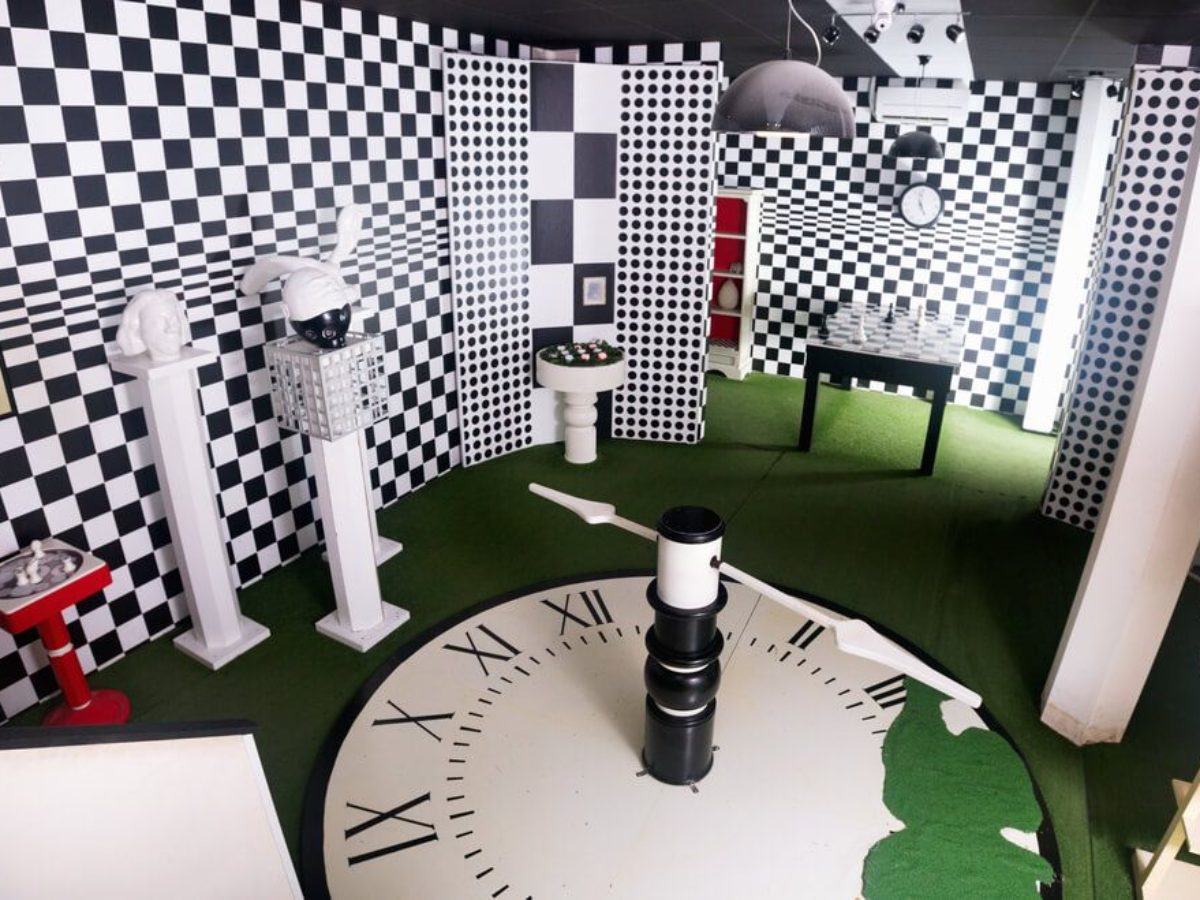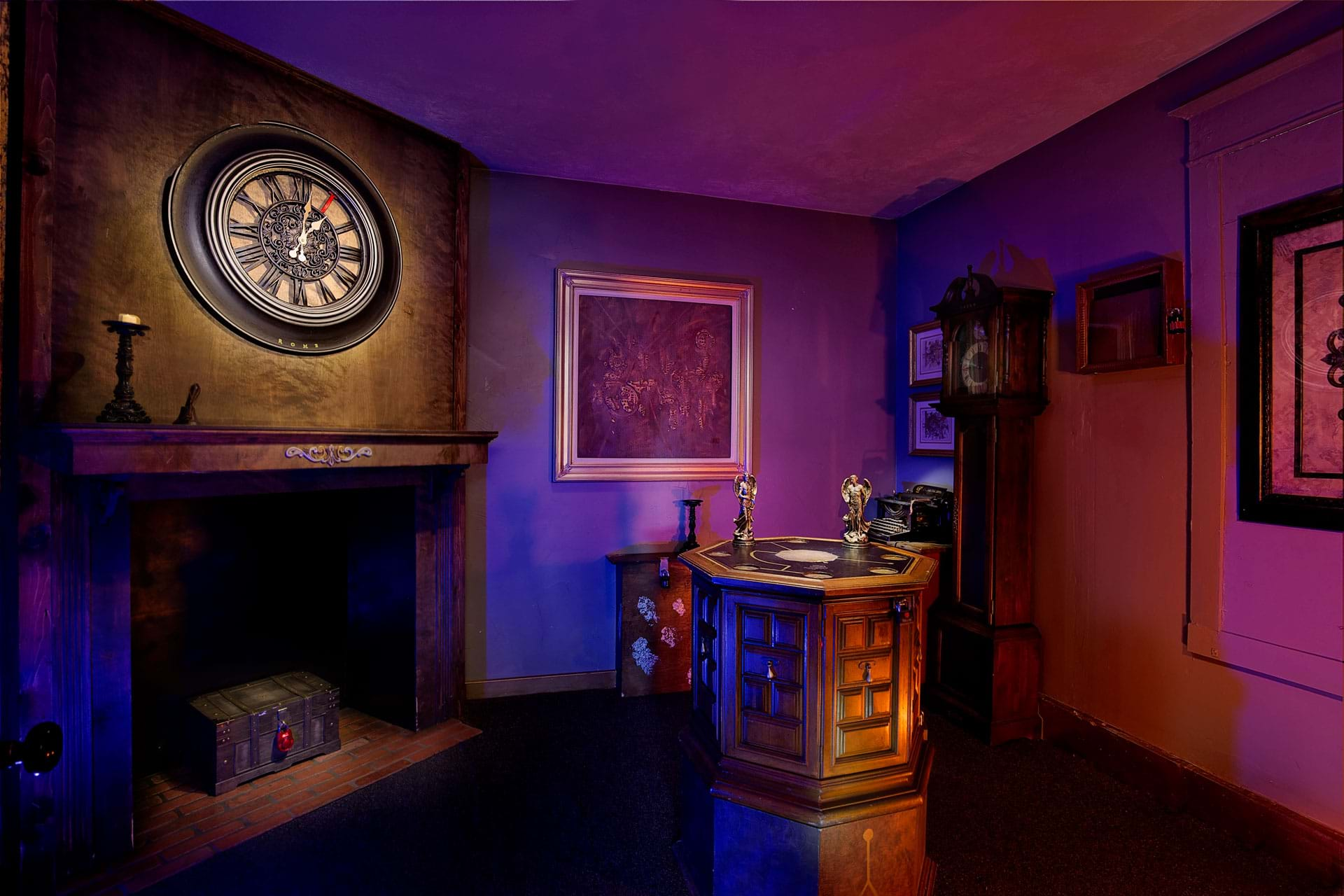Escape Room in Minneapolis-- A Perfect Task for Any Type Of Event
Escape Room in Minneapolis-- A Perfect Task for Any Type Of Event
Blog Article
Team Techniques: Just How to Collaborate Efficiently in a Retreat Area
Teams have to proactively pay attention to each member's understandings, assign functions that straighten with individual toughness, and preserve routine check-ins to make certain emphasis and stop redundancy. By cultivating an atmosphere that values communication and versatility, teams can dramatically increase their performance and success prices.
Establish Clear Communication

To assist in clear interaction, it is crucial to designate a central point of call for information dissemination. Short, concentrated updates from each group member can keep the team notified without frustrating them with information.

Designate Roles Strategically
While clear communication establishes the structure for efficient team effort, assigning duties tactically ensures that each staff member's staminas are utilized efficiently. In a getaway space scenario, the time-sensitive and complicated nature of obstacles necessitates an efficient approach to job delegation. By identifying and leveraging specific expertises, teams can optimize their problem-solving abilities and enhance general efficiency.
First, evaluate the unique abilities and characteristics of each individual. Somebody with an eager eye for detail might stand out in locating hidden objects, while a logical thinker can be much better suited to resolving challenges. It's just as vital to have a leader who can supervise progression, manage the timeline, and make definitive telephone calls when essential. This function frequently needs strong organizational and interpersonal skills.
Second, make certain that roles are adaptable and versatile. As new challenges arise, the team must be able to pivot, reallocating jobs as needed. This adaptability helps maintain energy and stops traffic jams that might happen because of inflexible role assignments.
Inevitably, a strategic approach to role assignment not only optimizes the toughness of each staff member but likewise fosters a cohesive setting, driving the team in the direction of an effective escape.
Make Use Of Diverse Abilities
Acknowledging and using the varied abilities within your group can dramatically boost your performance in a retreat area. Each team member brings distinct strengths to the table, and properly leveraging these abilities can speed up analytical and boost general performance. A team participant with solid logical skills may succeed at figuring out complex codes or patterns, while another with keen observational capabilities may quickly detect concealed ideas that others might neglect.
Reliable interaction is vital to making use of these varied abilities. Encourage staff member to voice their understandings and concepts immediately, making certain that all prospective options are taken into consideration. This comprehensive technique cultivates a vibrant setting where creative thinking and vital reasoning can grow. Furthermore, appointing tasks that line up with each participant's toughness can avoid bottlenecks and guarantee that progression is continuous.
In addition, diversity in abilities commonly converts to variety in thinking styles, which is important in a retreat room setting. While some challenges might need logical reasoning and accuracy, others may take advantage of creative and side check my reference reasoning. By acknowledging and leveraging this diversity, groups can attend to a wider range of obstacles better, therefore increasing their opportunities of a successful retreat.
Manage Time Successfully

Determine visible problems and separate tasks based on team members' toughness, making certain that no one is idle. This practice can help maintain the team focused and stop time from slipping away undetected.
In addition, prevent passage vision. If a problem is taking as well long, rotate group participants or carry on to an additional difficulty, returning later on with fresh point of views. Communication is critical-- keep everybody upgraded on addressed challenges and remaining jobs to avoid repetitive initiatives.
Finally, utilize any type of tips or clues moderately but purposefully - best escape room. Knowing when to request help can conserve valuable time. By sticking to these time administration principles, groups can dramatically enhance Read Full Article their opportunities of an effective and satisfying retreat space experience
Debrief and Show
Reflection is an important element of group development and enhancement in the context of escape spaces. As soon as the challenge is completed, whether successfully or otherwise, it is crucial for the team to participate in a structured debriefing session. This procedure permits team participants to assess their efficiency, identify staminas, and determine locations for enhancement.
Begin the debrief by reviewing what worked out. Highlight specific instances of reliable interaction, problem-solving, and partnership. Acknowledging these positive habits enhances them and urges their repetition in future challenges.
Following, deal with the challenges ran into. Review moments of complication, miscommunication, or inadequate techniques. Motivate an open and constructive dialogue where staff member can share their perspectives without anxiety of criticism. This promotes a culture of constant improvement and learning.
Verdict
To conclude, effective collaboration in an escape room is based upon clear interaction, critical function tasks, the efficient use of diverse abilities, and proficient time management. Normal check-ins and organized debriefings are essential for keeping focus and fostering continual renovation. By check my source producing a cohesive and flexible team atmosphere, the likelihood of successfully fixing puzzles and accomplishing the objective of running away the room is significantly enhanced. This strategy not only ensures success but also advertises collective development and discovering.
Report this page